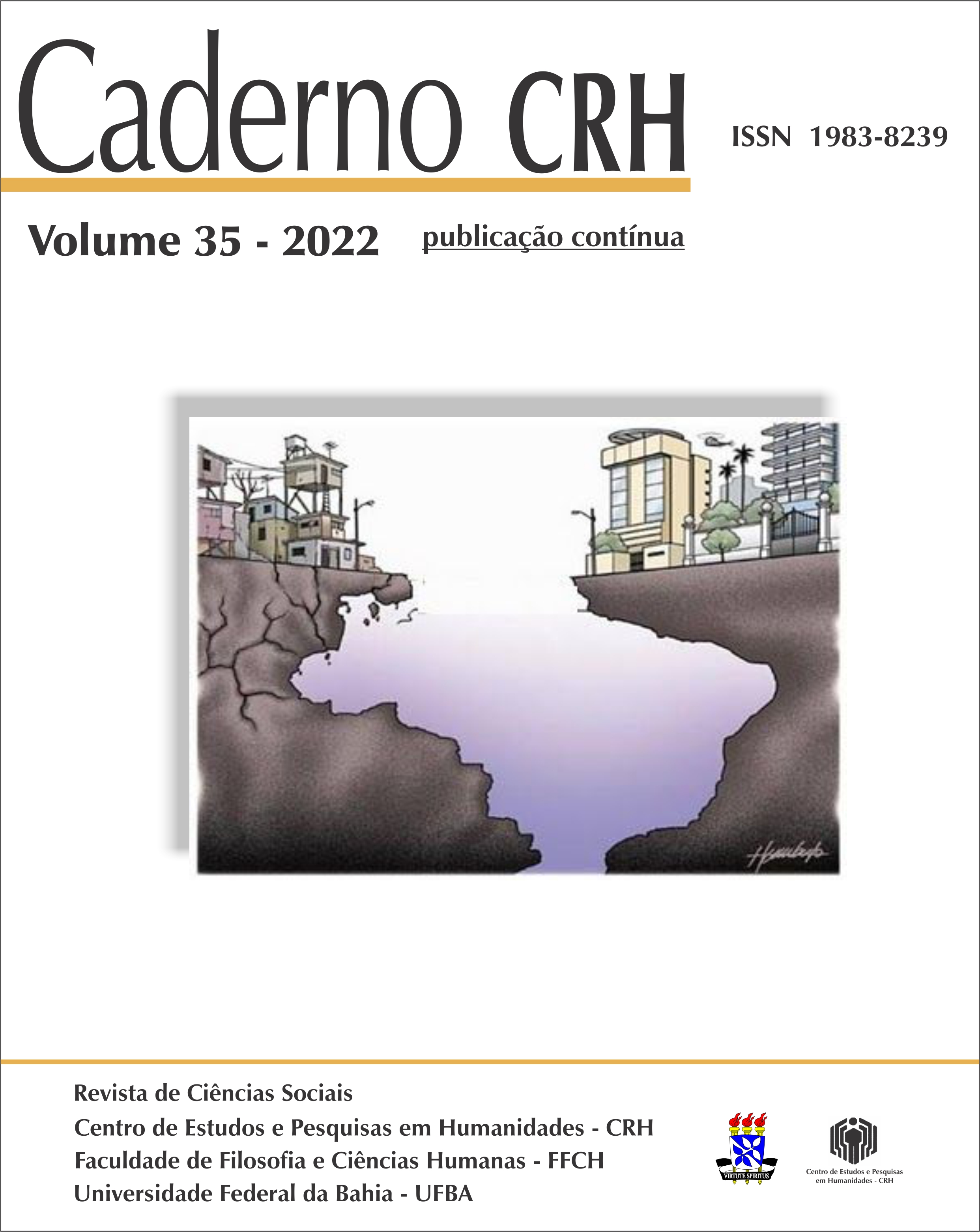LOGIQUES PRÉDATRICES: aller bien au-delà des inégalités
DOI :
https://doi.org/10.9771/ccrh.v35i0.48850Mots-clés :
Inégalité., La financiarisation, Le capitalisme mondial, Les expulsions, Capacités systémiquesRésumé
L’article part du principe qu’il existe des éléments constitutifs importants dans des systèmes sociaux complexes qui contribuent aux inégalités, mais qui ne peuvent être capturés par une analyse
des distributions de revenus. L’accent est mis ici sur un réassemblage spécifique et complexe d’éléments clés que je considère comme l’une des
dynamiques de transformation depuis les années 1980. La seconde moitié de l’article se penche sur un cas spécifique pour illustrer ses caractéristiques
prédatrices, à partir des années 2000. Il est nécessaire d’aller bien au-delà de la notion d’inégalité pour comprendre certaines des principales logiques en
jeu aujourd’hui. La distinction entre la finance et la banque traditionnelle est fondamentale pour l’argument présenté. Je caractérise la finance comme étant marquée par une logique d’extraction plutôt que de consommation de masse. Ainsi, les modes spécifiques que l’inégalité prend dans la période actuelle nous emmènent au-delà des distributions
inégales des revenus et du pouvoir.
Téléchargements
Références
ARRIGHI, G. The long twentieth century: money, power, and the origins of our times. London: Verso, 1994.
BRYSON, J. R.; DANIELS, P. W. (ed.). The service industries handbook. Cheltenham: Edward Elgar, 2009.
CETINA, K. K.; PREDA, A. (ed.). The sociology of financial markets. Oxford: Oxford University Press, 2004.
EICHENGREEN, B. Contending with capital flows: what is different about the 1990s? New York: Council of Foreign Relations, 1996. Occasional paper.
EICHENGREEN, B. The great depression as a credit boom gone wrong. Bank for International Settlements Working Papers, Basel, n. 137, sep. 2003. Disponível em: https://www.bis.org/publ/work137.pdf. Acesso em: 7 abr. 2022.
EICHENGREEN, B. Global Imbalances and the Lessons of Bretton Woods. Cambridge, Massachusetts: MIT Press, 2004.
FISHER, M. S.; DOWNEY, G. (ed.). Frontiers of Capital: Ethno- graphic reflections on the new economy. Durham: Duke University Press, 2006.
HELLEINER, E. The status quo crisis: Global financial governance after the 2008 meltdown. New York: Oxford University Press, 2014.
HIRST, P.; THOMPSON, G; BROMLEY, S. (ed.). Globalization in question. Cambridge: Polity Press, 1996.
KAPSTEIN. E. Governing the global economy: international finance and the state. Cambridge: Harvard University Press, 1994.
KRIPPNER, G. R. Capitalizing on crisis: the political origins of the rise of finance. Cambridge: Harvard University Press, 2011.
MACKENZIE, D.; MUNIESA, F.; SIU, L. (ed.). Do economists make markets? On the Performativity of Economics. Princeton: Princeton University Press, 2007.
REIFER, T. (ed.). Global crises and the challenges of the 21st century. New York: Routledge 2010.
RUGGIE. J. Territoriality and beyond: problematizing modernity in international relations. International Organization, [s.l.], v. 47, n. 1, p. 139-174, 1993.
SASSEN, S. Losing control? Sovereignty in the age of globalisation. Nova York: Columbia University Press, 1996.
SASSEN, S. Globalization and its discontents. New York: W. W. Norton, 1998.
SASSEN, S. The global city. Princeton: Princeton University Press, 2001.
SASSEN, S. Territory, Authority, Rights: From Medieval to Global Assemblages. Princeton: Princeton University Press, 2008.
SASSEN, S. Expulsions: Brutality and Complexity in the Global Economy. Cambridge: Harvard University Press, 2014.
SASSEN, S. The global city: enabling economic intermediation and bearing its costs. City & Community, [s. l.], v. 15, n. 2, p. 97-108, 2016.SMITH, D. A; SOLINGER, D. J.; TOPIK, S. C. (ed.). Sovereignty, territoriality, and the globalization of finance. In: SASSEN, S. States and sovereignty in the global economy. London: Routledge, 1999. p. 138-157.
TABB, W. K. Economic governance in the age of globalization. New York: Columbia University Press, 2004.
VINER, J. The long view and the short: studies in economic theory. Glencoe, III: The Free Press, 1958.
ZALOOM; C. Out of the pits: traders and technology from Chicago to London. Chicago: University of Chicago Press, 2006.
Téléchargements
Publiée
Comment citer
Numéro
Rubrique
Licence

Ce travail est disponible sous licence Creative Commons Attribution - Pas d'Utilisation Commerciale - Pas de Modification 4.0 International.
Todo o conteúdo da revista, exceto onde indicado de outra forma, é licenciado sob uma atribuição do tipo Creative Commons BY.
O periódico Caderno CRH on-line é aberto e gratuito.





